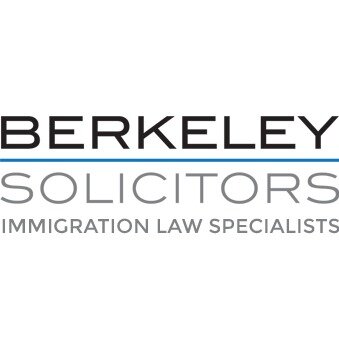Best Retirement Visa Lawyers in Dublin
Share your needs with us, get contacted by law firms.
Free. Takes 2 min.
List of the best lawyers in Dublin, Ireland
About Retirement Visa Law in Dublin, Ireland
The Retirement Visa, also known as the Stamp 0 Visa, allows non-EEA (European Economic Area) nationals to live in Ireland during their retirement years. This type of visa is intended for financially independent individuals who can support themselves without relying on public funds or employment in Ireland. Dublin, being the capital city of Ireland, has specific legal requirements and procedures for obtaining a Retirement Visa, which must be followed meticulously to ensure a successful application.
Why You May Need a Lawyer
Seeking legal advice can be crucial in various situations related to Retirement Visa applications in Dublin. A lawyer can help to:
- Understand the specific eligibility criteria and necessary documentation for the visa application.
- Navigate the complex legal processes involved in submitting a Retirement Visa application.
- Ensure compliance with local immigration laws to avoid potential issues that could lead to application denials or legal complications.
- Provide guidance on how to maintain legal status and fulfill any ongoing visa requirements once the Retirement Visa is granted.
- Address any legal challenges or disputes that may arise during the visa application process.
Local Laws Overview
Key aspects of the local laws relevant to the Retirement Visa in Dublin include:
- Financial Requirements: Applicants must demonstrate sufficient income and savings to support themselves without seeking employment or availing public benefits.
- Health Insurance: Proof of comprehensive health insurance coverage in Ireland is required.
- Accommodation: Applicants need to show evidence of having secured accommodation in Dublin.
- Background Checks: Thorough background checks and police clearance certificates from the applicant's home country are necessary.
- Duration and Renewals: Retirement Visas are typically issued for one year initially and can be renewed annually, provided the applicant continues to meet the visa conditions.
Frequently Asked Questions
What is the Retirement Visa (Stamp 0) in Ireland?
The Retirement Visa, also known as the Stamp 0 visa, is a permission granted to non-EEA nationals allowing them to retire and reside in Ireland, assuming they are financially independent.
Who is eligible for a Retirement Visa in Dublin?
Individuals who are financially independent, have comprehensive health insurance, and can prove they have sufficient resources to live in Ireland without working are eligible to apply for a Retirement Visa.
What documents are required for the application?
Required documents typically include proof of income and savings, health insurance, accommodation arrangements, police clearance certificates, and a completed application form.
How long does the application process take?
The application process can take several months. It is advisable to apply well in advance to account for any delays in processing or the need for additional documentation.
Can I work while on a Retirement Visa in Ireland?
No, individuals on a Retirement Visa are not permitted to engage in employment or self-employment in Ireland.
Do I need health insurance to qualify for a Retirement Visa?
Yes, comprehensive health insurance coverage in Ireland is a mandatory requirement for the Retirement Visa application.
How much financial support is required for a Retirement Visa?
The exact amount can vary, but applicants must prove they have a stable and significant income along with substantial savings to cover their living expenses in Dublin without public assistance.
What happens if my application is denied?
If your application is denied, you may seek legal advice to understand the reasons for denial and explore options for reapplication or appeal.
Can my family members join me on a Retirement Visa?
Family members can join you, but they must receive their own visa approval, meeting the financial and other requirements independently or as dependents under specific conditions.
Is the visa renewable, and what are the conditions for renewal?
Yes, the visa is renewable. You must continue to meet the original application conditions, including financial requirements, health insurance, and compliance with Irish immigration laws, to qualify for renewal each year.
Additional Resources
For more information and assistance, you can refer to the following resources:
- Irish Naturalisation and Immigration Service (INIS)
- Department of Justice and Equality
- Citizens Information Board
- Immigration solicitors and legal advisors specializing in Irish immigration law
- Expats in Ireland forums and support groups
Next Steps
If you need legal assistance with your Retirement Visa application in Dublin, consider taking the following steps:
- Contact a solicitor or immigration lawyer with expertise in retirement and visa laws in Ireland.
- Gather all relevant documentation and details of your financial status, health insurance, and accommodation.
- Schedule a consultation to discuss your situation, ask questions, and get personalized legal advice.
- Follow your lawyer's guidance on completing and submitting your application, ensuring compliance with all legal requirements.
- Stay informed about any updates or changes in Irish immigration laws that may affect your visa status.
Lawzana helps you find the best lawyers and law firms in Dublin through a curated and pre-screened list of qualified legal professionals. Our platform offers rankings and detailed profiles of attorneys and law firms, allowing you to compare based on practice areas, including Retirement Visa, experience, and client feedback.
Each profile includes a description of the firm's areas of practice, client reviews, team members and partners, year of establishment, spoken languages, office locations, contact information, social media presence, and any published articles or resources. Most firms on our platform speak English and are experienced in both local and international legal matters.
Get a quote from top-rated law firms in Dublin, Ireland — quickly, securely, and without unnecessary hassle.
Disclaimer:
The information provided on this page is for general informational purposes only and does not constitute legal advice. While we strive to ensure the accuracy and relevance of the content, legal information may change over time, and interpretations of the law can vary. You should always consult with a qualified legal professional for advice specific to your situation.
We disclaim all liability for actions taken or not taken based on the content of this page. If you believe any information is incorrect or outdated, please contact us, and we will review and update it where appropriate.













